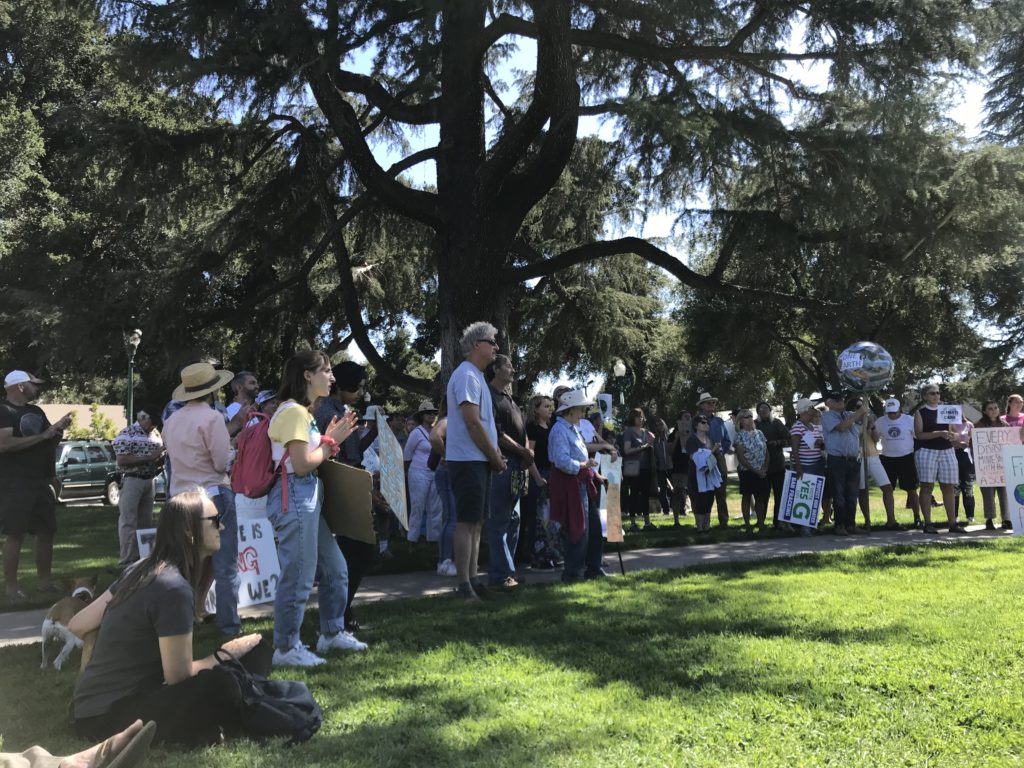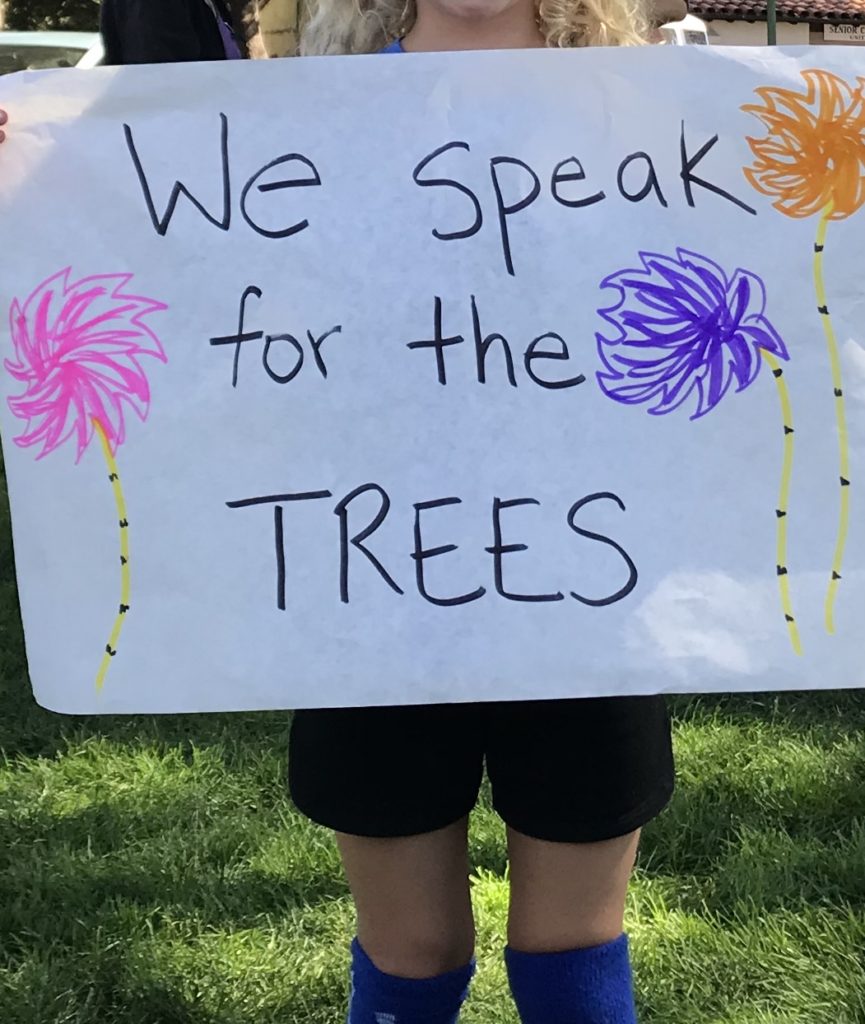The simmering heat of the September sun above Atascadero, California, did not dissuade dozens of people from rallying and picketing in front of City Hall last Friday. We joined millions of others around the world to participate in the Global Climate Strike.

As a young adult who is studying history at the local college and who is active in environmental and immigration justice as well as anti-war organizing, I decided to attend the climate strike for a variety of reasons. Humankind is facing an existential crisis, a choice, that we have relegated to non-existence for too long. If we are to make a choice about the future according to any positive framework, we must come together as an affected people. My curiosity about the Global Climate Strike and the leading philosophies behind this movement also motivated me to join the strikers in the streets.
Climate apartheid has become a well-deserved flashpoint in politics across the planet. Those “in poverty are responsible for just a fraction of global emissions” yet “they will bear the brunt of climate change,” according to Philip Alston, the United Nations Special Rapporteur on extreme poverty and human rights. Meanwhile, he notes, “the wealthy pay to escape overheating, hunger and conflict while the rest of the world is left to suffer.” In light of this, who could be surprised that youth have risen up together around the world in a brave act of defiance?
The protest in Atascadero, a relatively quiet city of just over 30,000 outside of San Luis Obispo, was a fascinating and beautiful sight. One striker carried a sign painted with skull and crossbones, settled in between the words: “6th Mass Extinction.” Another high-school aged youth had a handmade poster with two eyes, with both sides of planet Earth as pupils, to capture the peoples’ affected by climate change. The poster read simply “OPEN YOUR EYES.” Another sign featured the blunt declaration: “Planet Over Profit.”
Greta Thunberg, the superstar sixteen year-old Swedish environmental justice advocate, was mentioned by those who spoke at the event; as was the Green New Deal, popularized by Bernie Sanders and Alexandria Ocasio-Cortez. Among the activist community, Thunberg, Sanders and Ocasio-Cortez are symbolic icons that push youth to action.
Standing in the shade, beneath a large oak tree, a child was carrying a sign that had three different trees drawn upon it, all stylized in the fashion of Dr. Seuss’s ecological tale The Lorax. Written in the middle of the sign in bold letters, was the phrase: “We Speak for the Trees.” This was a marvelous piece of art, which displayed some of the youthful inspirations channeled as part of the global action.

Eric Greening, a longtime local activist, said his presence at the strike was due to a variety of related circumstances, but especially to the legacy of planet Earth. “How can I show my appreciation [to the earth]?” he asked. “The human community, of which I am a part, is why I am an activist.” As I spoke with Greening, protesters chanted condemnations against global oil corporations.
A spirit of radicalism permeated the air, as if just bubbling underneath the surface. “We know that stopping economic inequality and climate change are one and the same thing,” organizer and activist Carmen Bouquin told the crowd. “We can not solve climate change without addressing economic inequality.”
Climate change is impacting “the most vulnerable… Women, people of color, Black and Brown communities, low-income communities,” Bouquin declared. As the chanting began, she decided to add in a new chant, dedicated to climate refugees. The crowd eagerly joined, chanting: “No Borders, No Nations, No Coal Power Stations.” Making these connections, according to Bouquin, “embodies the idea” that the “crisis happening with asylum seekers is a part of the climate crisis and comes from the same sources.”
There is widespread acknowledgement that a choice has been made for the vast majority of global residents, one involving a race to the precipice in a lustful drive for short term profits. The Global Climate Strike seeks to channel that animosity, especially in its demands for dramatic carbon emissions cuts and diversions to more sustainable energy, promising that young people will no longer be complacent in the face of such un-democratic narcissism.
The Global Climate Strike is in its infancy with regards to environmental justice. Protestors like myself in the countries that are the largest emitters of emissions are following in the monumental footsteps of a diverse array of Indigenous communities. I brought my own sign to the march, which sought to add a new voice, or inspiration, to this small city. It read, quoting the words of Honduran Indigenous martyr Berta Cáceres:
Let us wake up. Let us wake up, humankind! We’re out of time. We must shake our conscience free of the rapacious capitalism, racism and patriarchy that will only assure our self-destruction.
The first victims of global climate apartheid are the most marginalized people, as was emphasized at the protest in Atascadero. Indigenous peoples have been fighting this battle for decades, if not centuries. If mainstream environmental justice activism seeks to remedy the issues plaguing this planet, the toxic intersectionality that is climate change must be at the fore.
Building off this realization, the entire county of San Luis Obispo, of which Atascadero is a part, will hold another rally as well as a march this coming Friday at the county courthouse.
Author Bio
Chance D. Coates is a student, essayist, and aspiring teacher of history, who is hoping to specialize either on the Middle East or Latin America. Follow him on twitter here.
